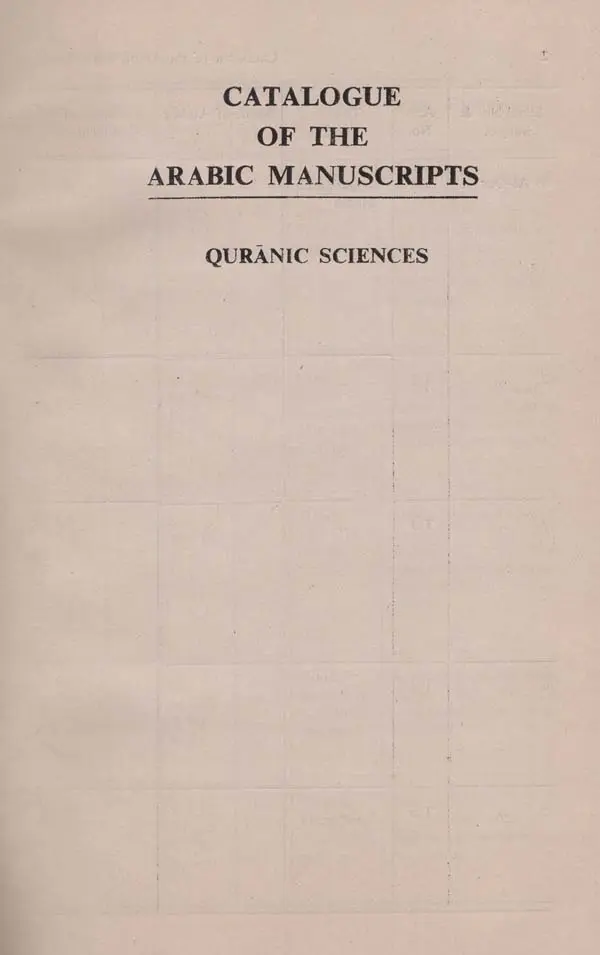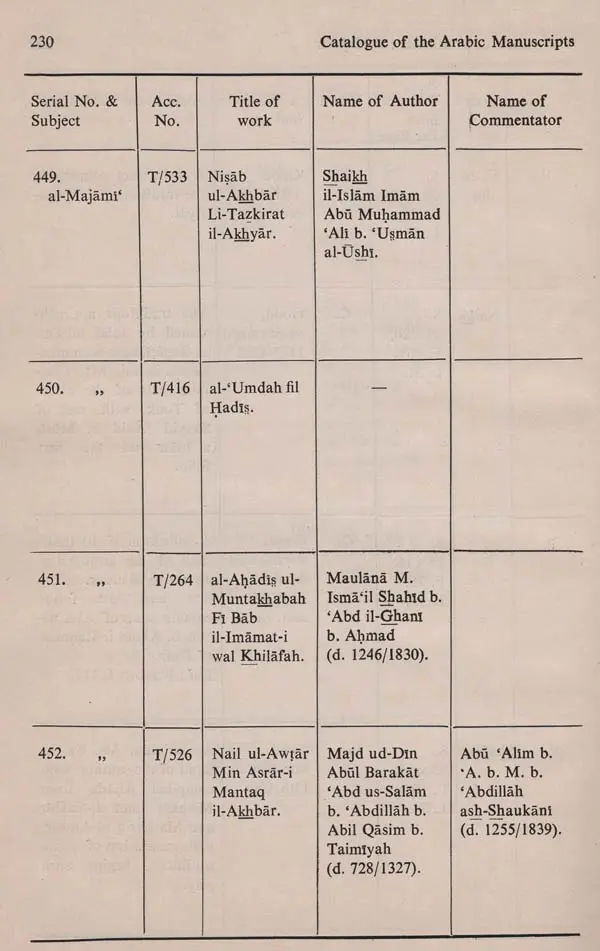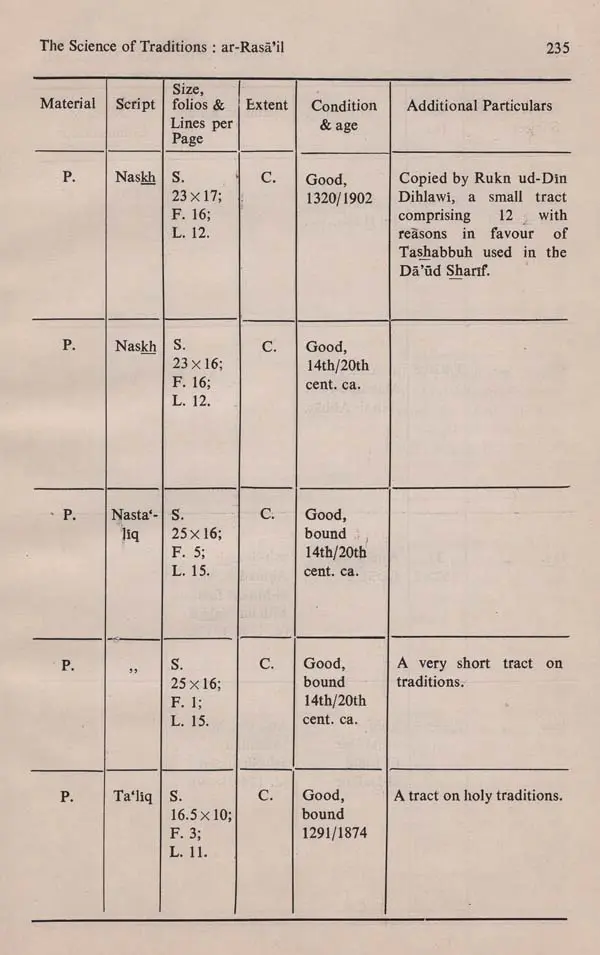
Catalogue of the Arabic Manuscripts: Vol-1 (An Old and Rare Book)
Book Specification
| Item Code: | UBC134 |
| Author: | Shaukat Ali Khan |
| Publisher: | Arabic And Persian Research Institute, Rajasthan |
| Language: | English |
| Edition: | 1980 |
| Pages: | 304 |
| Cover: | HARDCOVER |
| Other Details | 9.50 X 6.50 inch |
| Weight | 540 gm |
Book Description
I feel great pleasure to write the foreword of this catalogue which is one of the praiseworthy achievements of Tonk (Rajasthan). Rajasthan boasts to have skirted Tonk- the centre of advance and Islamic Research of the highest order. It is undoubtedly a place to be reckoned which produced men of letters, scholars, sufis, sages, saints and poets forming an illustrious galaxy round the enlightened Nawabs who had also been the pioneers and patrons of art, culture and languages under whose patronage this invaluable Arabic and Persian Research Institute developed. It is one of the very few centres of Islamic and oriental research studies in the world while standing second to none in the country. It is our national heritage of Islamic studies which comprises rare, rich and original sources on the Islamic studies and social sciences. The autographed works of authors, poets, emperors, princes, sufis, and saints, deserve importance. Elegant, splendid and illuminated manuscripts, demonstrating excellent calligraphy of varied specimens are also worth mentioning of which this catalogue raisonne makes a mention.
I am happy to learn that Indian Council of Historical Research has also sanctioned a research project to Mr. Shaukat Ali Khan for preparing a descriptive catalogue which shall be brought out in due course of time. In the meantime, the Ministry of Education, Government of India, displayed their keen interest in publishing this catalogue raisonne under their cataloguing scheme which was unavoidably necessitated to introduce the source material to research scholars initially before bringing out the above said comprehensive catalogue.
I am confident that this catalogue for which scholars have since long been waiting, will be hailed with esteem and applause and will serve the purpose of the researchers working upon various projects of historiography and oriental studies.
By the grace of almighty Allah it is a Proust privilege for me to have been associated with this invaluable and historical collection of Arabic and Persian manuscripts which forms a unique nucleus of national heritage of Islamic Studies and Indology with special reference to historiography and other varied sciences of intrinsic values to be honoured, esteemed, cherished, and perpetuated for the posterity to come. This invaluable collection is replete with rare and unique source material of pragmatic mass of manuscripts of varied tests and techniques deeply rooted in the segmented branches of Islamic Studies and oriental sciences interwoven and inter-related to each other in a pyramidal and polygonal style. It is a curious blending of classical literature, religious, dogmatic and theological classics and of oriental sources with a strong bias of other related sciences of sterling value and worth.
The nascent Arabic and Persian Research Institute Rajasthan, Tonk, although is in its infancy, yet its history is equally as old as the chequred history of the erstwhile Tonk State. Its original development and organization is rooted in the origin and establishment of the literary history of Tonk which goes back not beyond the accession of Wazır ud-Daulah Wazır ul-Mulk Nawwab Muhammad Wazır Khan Bahadur the second ruler of the Tonk State.
The Tonk State was founded in 1817 by Amir ud-Daulah Amir ul-Mulk Nawwab Mohammad Amir Khan Bahadur Shamshir Jung-the first freedom fighter of India among the masses and the first founder ruler of the State. He had not only brought with him warriors, veteran generals, men of swords and soldiers of fortunes, but also versatile scholars, writers and men of letters who contributed a lot in the promotion and advancement of art, culture and literature. After ruling over for about 17 years, he expired in 1834. His son Nawwab Wazirud Daulah Bahadur succeeded him. He was himself an erudite and eminent scholar. His Darbar was transformed into the Mughal pattern. He founded many oriental institutions and established a library in his fort called Amir Garh. The library was styled as Kutub Khanah-i Waziri after his name. There was an invaluable stock of books, treatises and manuscripts to count.















